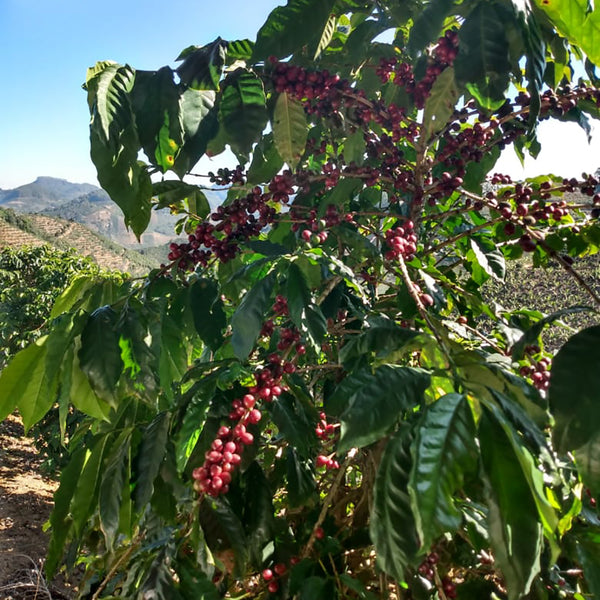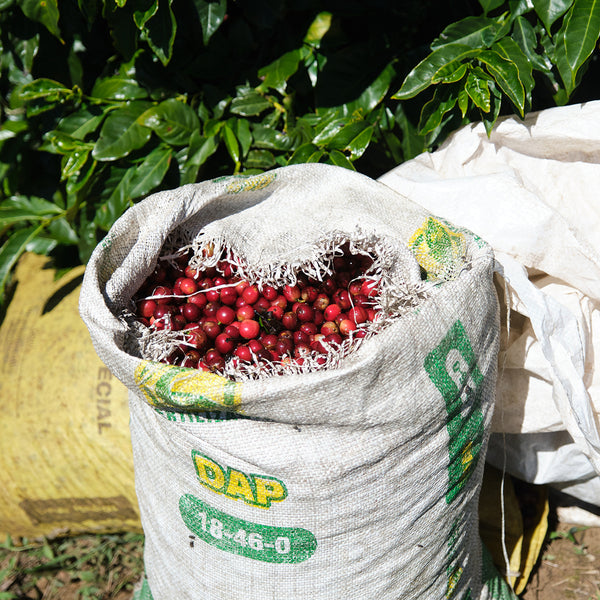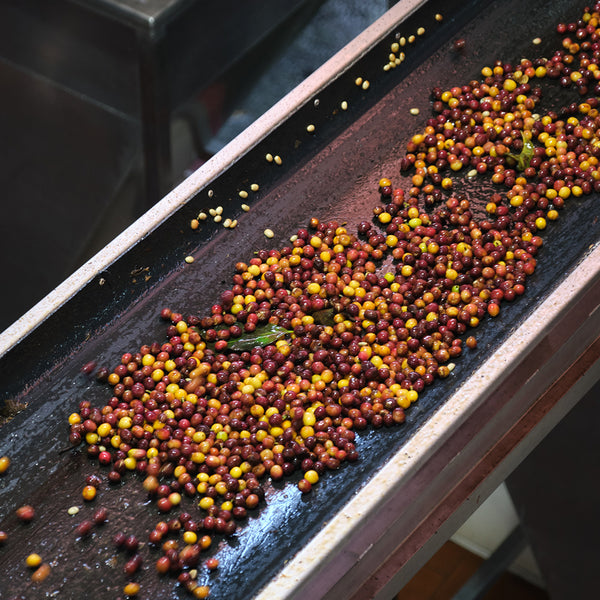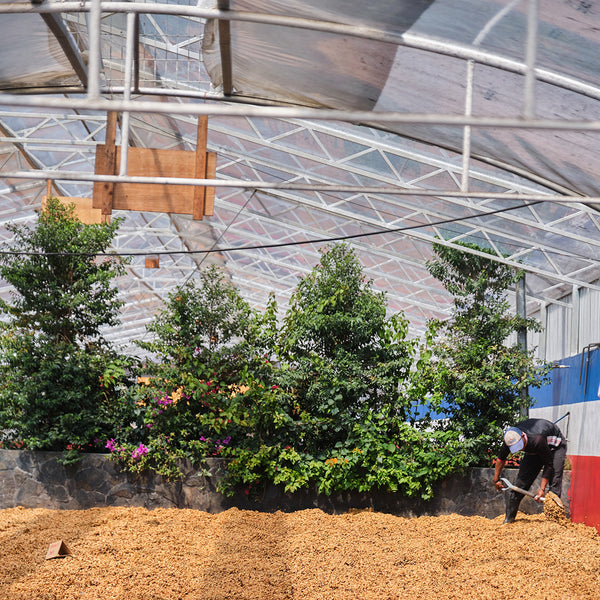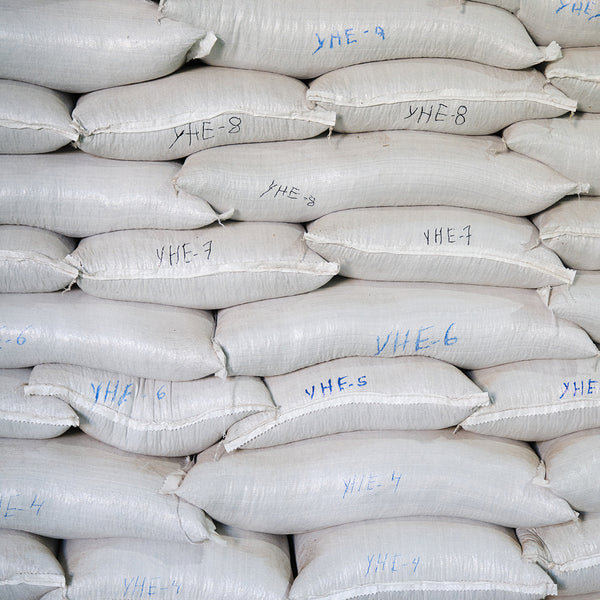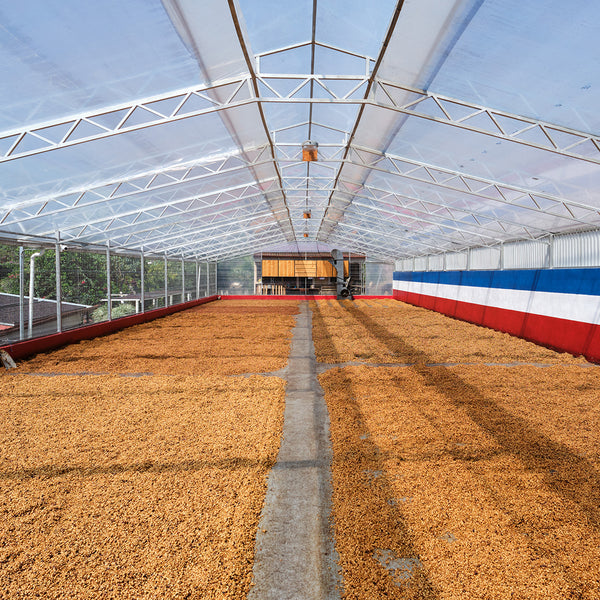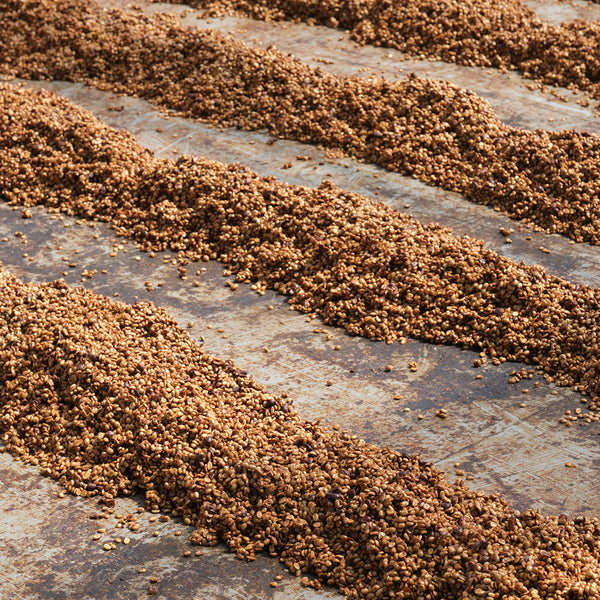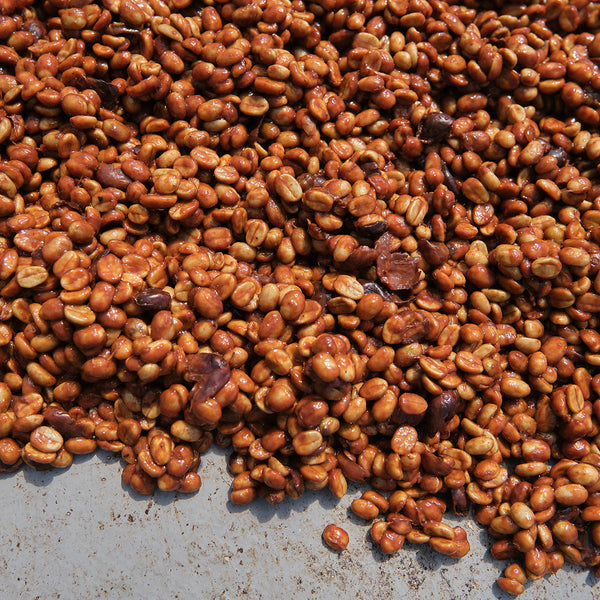FREE SHIPPING IN ONTARIO ON ORDERS OVER $75
Shipping calculated at checkout
In stock
COSTA RICA: BRUMAS DEL ZURQUI
TASTES LIKE: GRILLED PINEAPPLE, MANGO, DARK CHOCOLATE + BLUEBERRY
Farm: La Sur
Varietal: Typica
We are very excited to offer you this uniquely refined single-varietal microlot coffee.
Process: Natural
Natural coffees are typically processed the day they are harvested, and are first sorted for ripeness and quality before being rinsed clean of debris. In many places this initial sorting happens via a float tank: Damaged and defective cherries will float to the top to be removed, while high-quality coffee will sink to the bottom to be cleaned and dried. After sorting, cherries are spread on raised drying beds, table, tarps, or patios, where they will be rotated constantly throughout the course of drying. Drying can take an average of 30–40 days, depending on the weather.
Variety: Typica
Typica is one of the root varieties of Coffea arabica, a mutation of one or more selection from Ethiopia planted in Yemen and then transplanted to Java by the Dutch in the 17th century.
Region: Central Valley
The Central Valley of Costa Rica is the heart of the country’s coffee industry. The high elevation, consistent weather patterns, frequent rains, and volcanic soil contribute to the wide range of offerings we are able to source form this region. Producers in the Central Valley often grow traditional hybrids and apply some of Costa Rica’s most forward-thinking processing techniques.
Country: Costa Rica
As the first Central American country to fully establish a coffee industry, the history of coffee in Costa Rica is long and full of great economic significance. Coffee was planted in Costa Rica in the late 1700s but it was not until the 1820s that coffee became a major agricultural export for the country. In 1846, national output was greatly increased by the completion of a main road to Puntarenas, allowing farmers to more readily bring their coffee from their farms to market in oxcarts—which remained the way most small farmers transported their coffee until the 1920s.
Microlots from Costa Rica are typically sourced from producers who have invested not only in growing their farms, but also in building and operating their own processing facilities, typically called "micromills." Micromills typically yield fewer than 1,000 bags annually, and are often independently owned by a family or small group of producers. Microlots in Costa Rica are separated out based on differentiated characterizations such as processing, variety, or some other aspect.
Microlots carry the highest quality as well as the highest level of traceability. Our importers Costa Rican office in the capital city of San José: Oxcart Coffee is a full-service import-export operation that allows us to work directly with growers, build better connections and keep a closer eye on the quality and logistics of all coffee shipments leaving Costa Rica.
ABOUT COSTA RICAN COFFEE:
Coffee was planted in Costa Rica in the late 1700s, and it was the first Central American country to have a fully established coffee industry. Costa Rica contributes less than 1% of the world’s coffee production, yet it has a strong reputation for producing excellent, easy-to-drink coffee.
Lcafe is the national coffee association, an NGO that assists in the agricultural and commercial development of the Costa Rican coffee market. It is funded by an export tax on all coffee, which is used for scientific research into Arabica genetics and biology, plant pathology, soil and water analysis, and industry oversight.
Lcafe exists to guarantee that contract terms for Costa Rican coffee ensure the farmer receives 80% of the “free on board” price, where the ownership and price risks are transferred from the farmer/seller to the buyer.
One way that Costa Rica has differentiated itself from coffee-growing nations is through the diversity of profiles in its growing regions, despite its relatively small geographical size.



